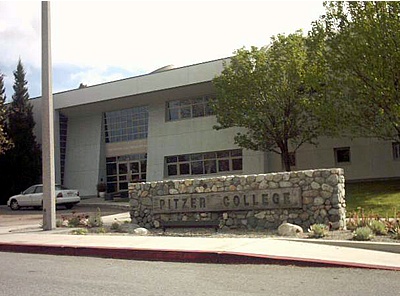 Photo from Wikimedia Commons.
Photo from Wikimedia Commons. A critical vote at the private liberal arts Pitzer College will determine whether the Claremont campus will formally end its study abroad partnership with the University of Haifa in Israel.
At the micro-level, the ramifications may be limited to only a few students needing to make alternate travel plans, but the decision may have a lasting harmful effect on campuses across the country.
Universities are designed to provide a space for open dialogue, the free exchange of ideas and exploration for those pursuing higher education. Allowing global politics to dictate which spaces in the collegiate world are permissible or accessible threatens the very purpose of academia to begin with.
The March 14 vote in Pitzer’s governing College Council will be the culmination of months of debate over the school’s study abroad program in Israel. Pitzer faculty members voting to call for the cessation of the school’s program in Haifa drew swift condemnations last fall, both from Pitzer President Melvin L. Oliver and proponents of academic freedom across the country.
However, BDS movement activists have continued to champion terminating this program. While initially looking to condemn the faculty’s unilateral vote, the student senate at Pitzer soundly rejected such a denunciation, voting 2-16 against condemning the faculty on Feb. 3.
Shared governance is a cornerstone to operations at Pitzer College, where students, faculty and staff all sit on the decision-making College Council. It is deeply troubling to see such an obvious targeted campaign against academic freedom from both university instructors and the very students for whom these opportunities are afforded.
“Academic bodies that adopt BDS-motivated legislation, such as academic boycotts, are playing into an anti-Semitic campaign to harm Israel and attack the Jewish right to self-determination.”
The spillover effect from terminating a study abroad program at Pitzer could wreak havoc on educational opportunities at other campuses. Already this academic year two University of Michigan lecturers refused to pen letters of recommendation for students planning Israel study trips and New York University’s Tel Aviv campus program has been targeted by a BDS-motivated initiative.
At issue in the Pitzer vote is not only the study abroad program in Haifa,but the idea that a student should not have his or her academic pursuits hindered by outside political influences. Proponents of BDS have attempted to define academic freedom as a principle that forces students to adhere to a boycott, potentially against their will. True academic freedom allows the free exchange of ideas regardless on circumstances in the host country.
In an already divisive and polarizing political climate, it is a disservice to American students to further limit the communities with whom dialogue and coexisting is “allowed.” Even when serious geopolitical issues are at stake, dissuading students from engaging with affected institutions perpetuates divides instead of bridging gaps in understanding.
The BDSMovement.net website, run by the Palestinian BDS National Committee, notes that academic boycotts are directed at the institutions rather than the individuals who are associated with them. This is a fallacious policy, as universities cannot reasonably be held responsible for the actions of a nation as a whole. The double standards in the BDS movement’s guidelines for academic boycott are clear. A pro-BDS instructor or post doc at the University of Haifa, for example, could travel to Pitzer College to deliver a lecture against Israeli “apartheid.” But the same boycott would prevent an open-minded Pitzer student from learning among Jewish, Muslim, Christian and other students during a semester abroad in Haifa.
Furthermore, a widespread campaign to block study abroad at universities in Israel will disproportionately affect Jewish students. Israel may be the only place observant Jewish students can study with accessibility to synagogues and kosher food. Additionally, Jewish students have few options outside of Israel to study Jewish culture, history or Hebrew language with native speakers.
None of these concerns come anywhere near the central objective of the BDS movement: to eliminate Israel as a Jewish state. Academic bodies that adopt BDS-motivated legislation, such as academic boycotts, are playing into an anti-Semitic campaign to harm Israel and attack the Jewish right to self-determination.
The College Council at Pitzer risks setting a dangerous precedent by confirming its faculty vote. The College Council should vote for academic freedom and preserve the University of Haifa program.
Los Angeles-based Zev Hurwitz is the director of campus affairs for the American Jewish Committee (AJC).






















 More news and opinions than at a Shabbat dinner, right in your inbox.
More news and opinions than at a Shabbat dinner, right in your inbox.